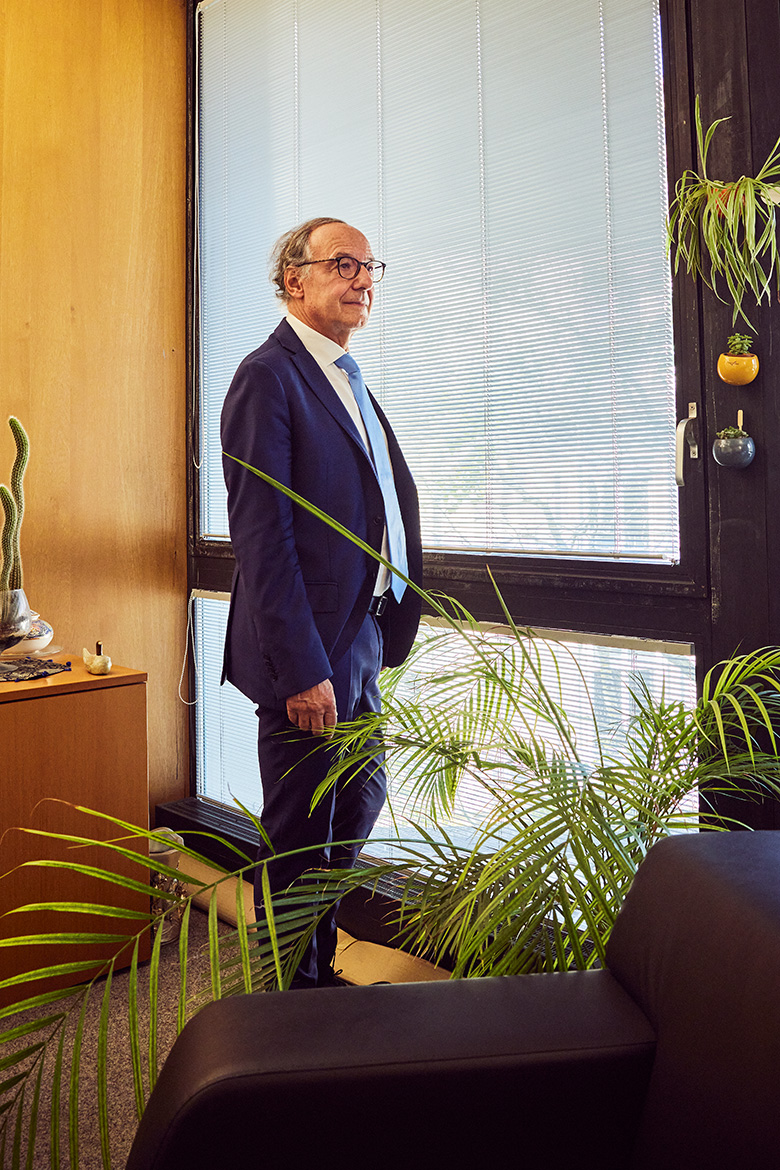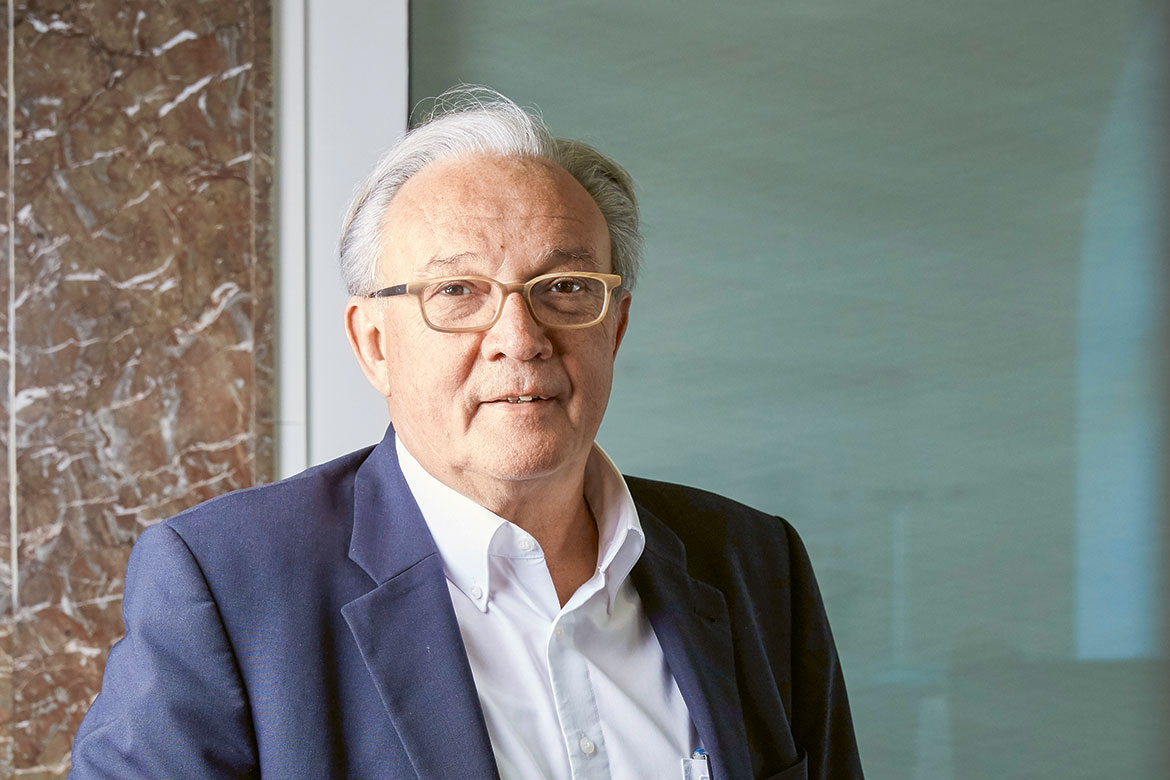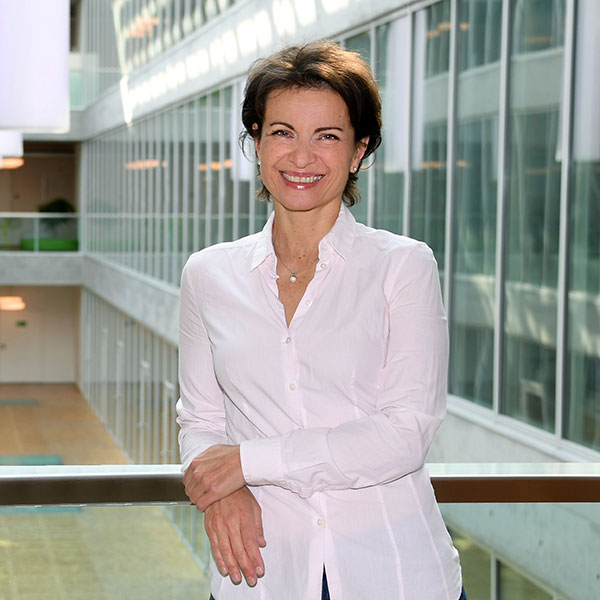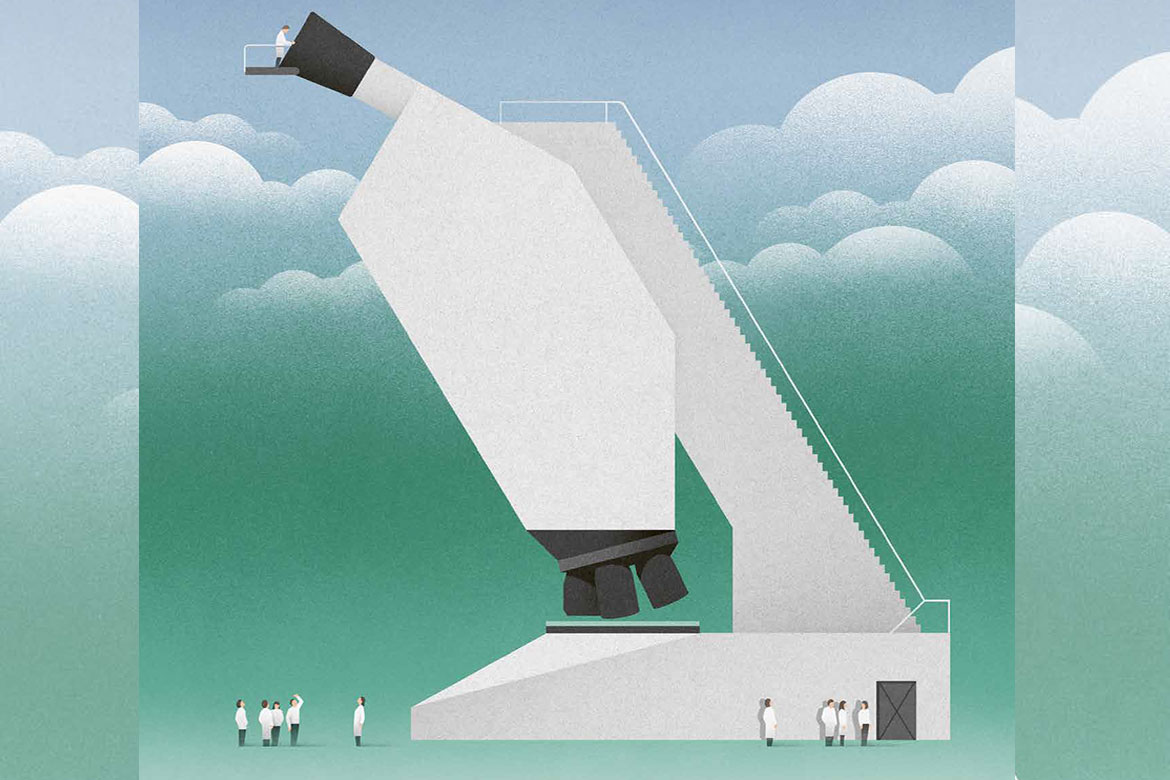INTERVIEW
“If we ask too much, politicians won’t follow-up”
Yves Flückiger, the rector of the University of Geneva, has been a leader in research policy during a complex period. We discuss science in today’s Switzerland, relations with Europe and employment conditions in universities.

Yves Flückiger has been elected the President of the Swiss Academies of Arts and Sciences. But he also believes that non-university careers should be supported. | Image: Sébastien Agnetti
Yves Flückiger, as the rector of the University of Geneva, are you able to continue active research in your area, i.e., economics?
Since taking over in 2015, I’ve had to stop my research activity progressively. I knew it would be the price I’d have to pay. As I was already 60 years old, it was less of a problem than it would have been for a 40-year-old, who might struggle to return to research at the end of their term. This is why the people who usually go into such posts are verging on retirement. It’s a shame for diversity.
Would a co-rector scenario have been a solution?
Yes, maybe. Some institutions do share out the management roles more. It’s a bit like that at ETH Zurich, where there’s a president and a rector, and in British universities. Given the exponential growth of the tasks, these models are worth examining.
Finding a successor for you in Geneva wasn’t the simplest of processes.
The law in Geneva stipulates that the person nominated by the University Assembly must ultimately be appointed by the State Council. It was within its rights to decide not to appoint the nominee of the Assembly, particularly on the basis that she was too far removed from the ground in Switzerland. My successor will finally be named in early December.
Swiss research is still counting the cost of the Horizon Europe ouster. How is it affecting the mood in higher education?
There’s a clear feeling of frustration. The file hasn’t moved in two years. Swiss research is continuing, but we’re seeing it slowly eroding. We’re delighted our UK colleagues have found a solution allowing them to reintegrate into the Horizon Europe programme, which is in the interest of Europe’s competitiveness against the US and China. But, that said, we’re now a bit alone. For the UK, the bilateral agreements with Switzerland have become urgent. And the other bilateral agreements with the US and Canada will never be a substitute, despite their quality, for the world’s largest research programme, i.e., Horizon Europe.
Can you think of an example?
The European Commission informed us that the University of Geneva and ZHAW that were founders of the European Masters in interpretation could no longer be accredited, because Switzerland is no longer a member of Erasmus. This reflects a clear hardening of the Commission’s position. In concrete terms, it means that our master’s programme is less attractive.
Including for research?
Yes, we’re out of the Quantum Flagship. It’s a penalty, given Switzerland is a leader in quantum research, a crucial sector for innovation. The Geneva spin-off ID Quantique has opened a branch in Vienna, where there’ll be a hundred jobs that would otherwise have been created in Geneva.
Despite these obstacles, Switzerland is still the most innovative country in the world.
It’s true. Swiss institutions are amongst the best in the world and we still draw in good scientists. But that requires heavy investment to offer our community cutting-edge infrastructure. The Weizmann Institute in Israel, for example, offers two million in relocation costs to scientists who sign up. Many institutions simply can’t afford it. The situation is still good today, but there are some worrying signs.
Is the Federal Council’s announcement of budgetary cuts a source of worry?
We’re being proposed a growth of one percent. Considering inflation, that’s a real cut. We’ve been clear during the consultation process that we need at least 2.5 percent to accommodate growth in student numbers. It would be 3.5 percent to ensure the social missions, but we know that’s illusory given the financial outlook of the Confederation. At the same time, the six billion that was earmarked for Horizon Europe will not be totally spent. The replacement measures are less costly, because we’re saving for the scenario where we’d have to pay to rejoin the programme.
The cuts also affect farming, the armed forces and development.
Yes, absolutely. It’s necessary to take stock of public finances. But at the same time explain that the Swiss economy is based on high-added-value entries. Science is our only resource. If we ask for too much, the politicians won’t follow up.
Must higher education start to improve its internal employment conditions?
There does need to be monitoring to ensure working conditions are fully satisfactory in an increasingly competitive academic context. Competition is of course necessary for progress, but it must be managed. PhD students need good supervision, thesis supervisors need to leave them enough time for their research, and more science jobs need to be made permanent. We also need to support non-university careers. This is one of the main challenges for universities worldwide.
Is financing also a problem?
It is certainly necessary to allocate money more fairly. If you increase the budget of the SNSF more than higher education, it creates a gap between the permanent and temporary positions. For example, the SNSF Eccellenza Fellowships are ideal for supporting women’s careers. But universities, especially smaller ones, often lack the means to make those jobs permanent when they end.
Are there other challenges today?
It’s essential to preserve fundamental research and its corollary, academic freedom. Research areas must not be dictated to us, neither by private nor public interests. Even by students, who sometimes, by preventing others from speaking, bypass the deeper meaning of academic freedom and the freedom of expression. We’ve worked with them to establish a charter to define these notions better. It’s also true of lecturers who speak out on topics that are not their field of expertise. They can do so, but in their capacity as citizens.
What do you hope to achieve as the incoming president of the Swiss Academies?
My main goal will be to strengthen trust between science and society. It’s a major challenge. It’s pretentious of me, perhaps, but, in Geneva, I’ve seen understanding grow among politicians in parliamentary commissions across the political landscape. It’s built up, step by step.




